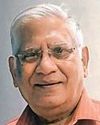
After returning to Delhi from his two-day visit to the forward areas of eastern Ladakh on June 25, Army chief General M.M. Naravane first briefed Defence Minister Rajnath Singh. The duo then went to Prime Minister Narendra Modi with a detailed situation report. After interacting with soldiers injured in the Galwan clash and with his local commanders, General Naravane concluded that the situation in the Ladakh sector was way too serious. Despite promises of troop reduction, the People’s Liberation Army (PLA) of China has further strengthened its deployment on the flashpoints by setting up permanent bunkers, pillboxes and observation posts. The prevailing sentiment on the ground on the Indian side is to impose a bigger cost on the enemy for the Galwan “betrayal”.
Eyeball-to-eyeball situation prevails in multiple locations where troops are separated by barely 100m, although at the June 22 meeting between corps commanders, there was an understanding to maintain a distance of at least 2.5km to 3km. What is most worrying for India is the deployment of Chinese armoured vehicles and artillery units in areas facing the Gogra Post-Hot Springs region. In response, India has moved forward its newly-inducted M777 howitzers, T-90 Bhishma tanks and other armoured vehicles. While China has deployed the S-400 air defence system, India has in place its Akash air defence system.
Even as New Delhi is exploring diplomatic and economic options to put pressure on Beijing to return to the pre-April status quo, the Army has been devising ways to show its prowess to the enemy. “Either you exercise military options or you wait and watch through negotiations. But in the wait-and-watch scenario, another Galwan type clash cannot be ruled out,” said a former deputy Army chief. “Military options, however, always have the risk of escalation.”
Denne historien er fra July 12, 2020-utgaven av THE WEEK.
Start din 7-dagers gratis prøveperiode på Magzter GOLD for å få tilgang til tusenvis av utvalgte premiumhistorier og 9000+ magasiner og aviser.
Allerede abonnent ? Logg på
Denne historien er fra July 12, 2020-utgaven av THE WEEK.
Start din 7-dagers gratis prøveperiode på Magzter GOLD for å få tilgang til tusenvis av utvalgte premiumhistorier og 9000+ magasiner og aviser.
Allerede abonnent? Logg på

Pressure Points
Author and MP Shashi Tharoor and motivational speaker Gaur Gopal Das on how to find healing and meaning in today's world

War Over Wounded Earth
For the BJP andthe Congress, the ravaged farmlands of Vidarbha represent a cxitieal battleground in their larger struggle to win Maharashtra

Say no to continual elections
Following the recommendations of a high-level committee led by former president Ram Nath Kovind to streamline the widely scattered schedule of national, state and local elections, the Union cabinet has reportedly approved two constitutional amendment bills for likely introduction in Parliament. Predictably, the return of the ‘one nation, one election’ issue to news has set off a flurry of objections by several opposition leaders.

Fabulously, fashionably funny
The third season of the Karan Johar-produced Fabulous Lives of Bollywood Wives dropped on Netflix, but articles criticising the show appear in some news site or the other almost daily. If it is so bad, why keep writing about it? And if it is so bad, why would the superpowers at Netflix, who are harder to meet than the prime minister, commission the show season after season?

All in the family
The Chitaras have been passing down the secret art of Mata Ni Pachedi through generations for more than 400 years now

Raise a toast to Vidya Balan
Vidya Balan is a New Year baby. At 45, she is aglow in the most beautiful way, having won the hearts and admiration of countless fans across the world, who watched the supremely talented actor take a public tumble on stage at a high-profile promotional event recently, sharing the platform with no less a dancer than the eternally graceful Madhuri Dixit.

Death no bar
Being alive is not a legal requirement to be elected president of the United States

The Lotus POTUS
You should visit us one of these days— there is so much excitement in our USA! No, I don’t mean the famous USA—the Ulhasnagar Sindhi Association of Mumbai.

RAY OF HOPE
Actor and cancer survivor Lisa Ray talks to oncologist Dr Jame Abraham about inner strength and her surrogacy journey

LEVERAGE AI TO ENHANCE WORK
AT THE WEEK Health Summit, Siddharth Bagga, head (retail, CPG and health care), Google Cloud, elaborated on the significant work that Google has been doing in health care through artificial intelligence (AI).